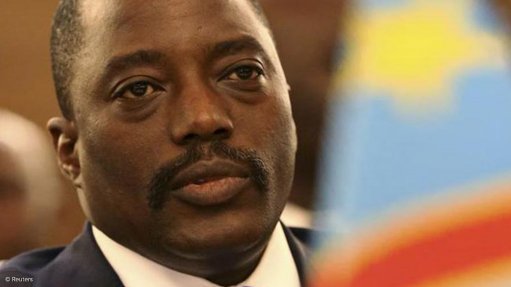
DRC President Joseph Kabila
Photo by: Reuters
The Democratic Republic of Congo’s (DRC) much-vaunted elections are due to be held in December after years of prevarication by incumbent President Joseph Kabila on the holding of elections - and a bloody crackdown on the opposition.
However, a decision by Felix Tshisekedi, the head of the Union for Democracy and Social Progress (UDSP) - the largest opposition party in the DRC, to pull out of an agreement to field a joint candidate in next month's crucial presidential elections, could diminish the opposition’s chances of challenging Kabila on December 23.
“Tshisekedi’s sudden decision follows a pact he signed on Sunday with other opposition figures who chose Martin Fayulu as their single contender after three days of negotiations in the Swiss capital Geneva,” Al Jazeera reported.
On Monday the UDSP issued a statement demanding Tshisekedi withdraw his signature from the document.
"I gather that the agreement reached in Geneva was not accepted by the grassroots and was rejected by them," Tshisekedi said in a radio interview. "As a result, I am withdrawing my signature from this agreement, which we signed yesterday."
Fayulu coming to prominence as the front runner caught observers by surprise as Tshisekedi was always seen to be the first choice. As the news spread in the DRC capital Kinshasa angry demonstrators gathered in the pouring rain, burning tyres and effigies.
Protests also took place outside the offices of the UNC, a party headed by Vital Kamerhe, a former National Assembly speaker, who had also been flagged as a possible unity choice in Geneva.
Peace in the DRC and the future of the mineral-rich country are contingent on the success of December’s elections and the ability of the opposition to successfully challenge the autocratic Kabila. Since gaining independence from Belgium in 1960, the country has never seen a peaceful transition of power.
Kabila has been in power since 2001 following the assassination of his father Laurent Kabila. He was elected in 2006 and secured a second term in 2011 despite allegations of widespread voter fraud. His mandate expired in late 2016 but he refused to vacate office leading to mass protests and unrest.
In addition to the bloody clashes on the ground between security forces and opposition activists, the country is also battling several violent militias in both South Kivu province and neighbouring North Kivu, where deaths are regularly reported.
The army says it is fighting the Ugandan Islamist rebels of the Allied Democratic Force (ADF) in North Kivu, while battling the Congolese Yakutumba militia several hundred kilometres away in South Kivu.